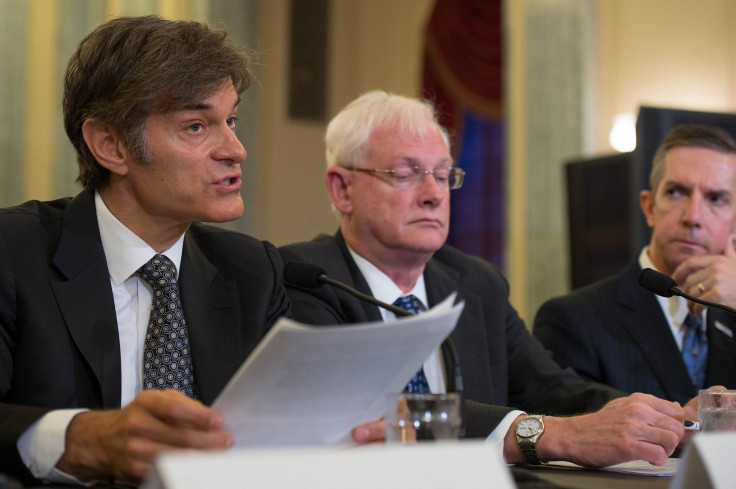Dr. Oz’s Favorite Weight Loss Pills Now Part Of $9M Refund Settlement: The Final Nail In The Coffin?

After months of being taken to task on blogs, in news reports, and even in front of the Senate, Dr. Mehmet Oz will watch as the product he long heralded as a “miracle” weight loss supplement gets refunded to consumers as part of a $9 million settlement.
Green Coffee Bean extract has long been the doctor’s go-to exemplar for the immediate reduction of body fat without having to alter diet or exercise. Recently, the Federal Trade Commission (FTC) issued a formal complaint against the companies associated with Dr. Oz’s hyperbolic claims, Pure Health LLC and Genesis Today, Inc., demanding the consumers who were misled into buying it receive a refund. What remains to be seen is the long-term impact of this drawn-out battle of science over hyperbole. Will consumers realize supplements can’t replace diet and exercise?
They should at least. In June of last year, Oz appeared before the Senate to defend the far-reaching claims he had made repeatedly on TV. Sen. Claire McCaskill, chairwoman of the Senate’s Consumer Protection Panel, grilled Oz about the reason behind the extreme language. Though he stumbled through many of the answers, searching for safe ways to tell the truth and protect himself, ultimately Oz responded with a measure of composed, well-backed science.
“What works for most people is a diet based on real foods — food that comes out of the ground and looks the way it looks when you eat it, that hasn’t been processed — with some physical activity,” he said. “Most of weight loss, I believe, is about the food choices you make. Most of keeping your weight low is about the physical activity you engage in.”
The recent settlement doesn’t actually involve Dr. Oz directly. It involves Pure Health and Genesis Today, two manufacturers of Green Coffee Bean extract. The FTC also included in its complaint Lindsey Duncan, the CEO of Genesis Today and embattled TV doctor, having appeared on The View and The Dr. Oz Show to much widespread criticism. When Duncan appeared on Oz’s show a few years back, he touted Green Coffee Bean extract as capable of producing nearly 20-pound weight loss in 12 weeks without exercise. What he didn’t mention were his corporate ties to the product he was endorsing.
The FTC’s complaint against Duncan claims that on numerous occasions he would appear on Dr. Oz’s show, promote a particular supplement during the taping, and before the episode aired would purchase advertising space to display the products on users’ computer screens — effectively generating buzz for a product whose sales he could manipulate in the future, thanks to the all-powerful “Oz Effect.” Indeed, it’s an effect without much basis. A study last December found only half of all health information found on the show could be traced back to published research.
There is little evidence to suggest one way or another that the recent settlement will affect consumers’ weight loss choices. But if the current data are anything to go by, the future is bleak. Diet and exercise are old school. One reason the supplement industry is growing at roughly six percent each year, expected to hit $16.4 billion in revenue in 2018, is that old-school tactics just aren’t sexy, or all that appealing. Obesity, meanwhile, has gotten further entrenched as a public health epidemic. Eating sensible portions and getting sweaty don’t often fit into the average American lifestyle.
As part of the FTC’s settlement, Genesis Today and Pure Health must also show their products have two well-controlled human studies behind them before the companies can make any claims. Unfortunately, the millions of dollars in sales the two companies earned from their under-the-radar advertising campaigns may only reflect the true extent to which Americans wish to avoid getting healthy the hard way.



























